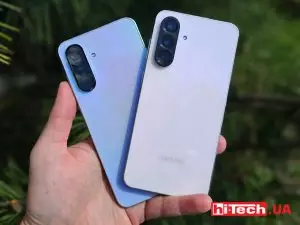Google Pixel 9, Pixel 9 Pro, and Pixel 9 Pro XL smartphones annonced: Still nope?
14.08.24![]()
Google introduced the new line of Pixel 9 smartphones, which includes three models: Pixel 9, Pixel 9 Pro and Pixel 9 Pro XL.
Pixel 9
The Pixel 9 smartphone is equipped with the new Tensor G4 processor from Google, which provides high performance in combination with 12 GB of RAM. ![]() This chip supports a number of AI-based features that improve camera performance and overall device performance.
This chip supports a number of AI-based features that improve camera performance and overall device performance.
![]()
The Pixel 9 has a 6.3-inch Actua display with a resolution of 1080 x 2424 pixels, protected by Gorilla Glass Victus 2. The smartphone also has a new camera design with a 50 MP main lens and an ultra-wide lens with 48 mega-fold optical zoom Super Res. The device’s camera is equipped with new features, including “Add me”, which allows you to combine photos to create group shots. The usual features like Night Sight for night photography and Magic Editor for photo editing are also available.
One of the key innovations was the Satellite SOS function, which allows you to send an SOS signal via a satellite network in the absence of cellular or Wi-Fi coverage. This service will be free for the first two years for US users.
![]()
The Pixel 9 runs on Android 14 and will receive operating system and security updates for seven years. The smartphone will be available in four colors: obsidian, porcelain, green and will be released in the US, Canada, Europe and Asia.
Pixel 9 Pro and 9 Pro XL
The new Pixel 9 Pro and 9 Pro XL models are updated devices with an improved design and improved camera panel. ![]() Both smartphones are available in four colors: Obsidian, Porcelain, Walnut and Rose Quartz.
Both smartphones are available in four colors: Obsidian, Porcelain, Walnut and Rose Quartz.
![]()
Both models are equipped with the new Tensor G4 processor, which supports Gemini Nano local data processing with Multimodality technology, which allows recognition of text, images and audio. Combined with 16 GB of RAM and a choice of 128 GB, 256 GB, 512 GB and 1 TB of built-in storage, the devices offer high performance.
The Pixel 9 Pro is equipped with a 4,700 mAh battery (minimum 4,558 mAh), and the Pixel 9 Pro XL is equipped with a 5,060 mAh battery (minimum 4,942 mAh). Both devices support fast charging with a power of 45 W, which allows you to charge the battery from 0 to 70% in 30 minutes. The smartphones also got new AI features like Gemini Live for advanced voice assistant and Pixel Studio for image editing. Clear Calling has been improved to now include Call Notes, which allows you to get a summary of your phone calls.
The Pixel 9 Pro and 9 Pro XL are among the first devices to support the Satellite SOS feature for emergency communications via satellite, which will be available for free for the first two years. The new Pixel Weather app uses artificial intelligence to provide accurate weather forecasts. The smartphones run on Android 14 and will receive operating system updates for seven years, with Android 15 expected in the coming months.
Both models feature 50MP primary cameras, a 48MP ultra-wide sensor, and a 48MP telephoto lens with 5x zoom. The front camera has been upgraded to 42 MP. Among the new features are video recording in 8K, support for Video Boost and Super Res Zoom up to 20x.
Pre-orders for the Pixel 9 Pro start at $999, while the Pixel 9 Pro XL starts at $1,099. Sales will begin on August 22, and the Pixel 9 Pro will be available on September 4.
![]()
Surprisingly, the Google Pixel 9 series of smartphones does not support the new Qi2 wireless charging standard. Although Qi2 was announced at the beginning of 2023 and technically completed at the end of the year, and the first Qi2-enabled products appeared on the market only recently, the Pixel 9 smartphones did not receive this feature.
Don't miss interesting news
Subscribe to our channels and read announcements of high-tech news, tes
Review of Samsung Galaxy A36 and Galaxy A56 smartphones: in a shadow of light

The Samsung Galaxy A36 and Galaxy A56 have equally good displays, large batteries, and support for software updates for 6 years. Let’s talk in more detail about what else makes them interesting.
iPhone will become 43% more expensive due to Trump tariffs Apple
After the Trump administration imposed massive tariffs, Apple was at risk of serious financial losses.
Ajax Systems IndoorCam IP camera with AI and infrared sensor goes on sale Ajax camera events in Ukraine smart house
Ajax Systems announced the start of sales of the IndoorCam security IP camera, designed for homes and small and medium-sized businesses


